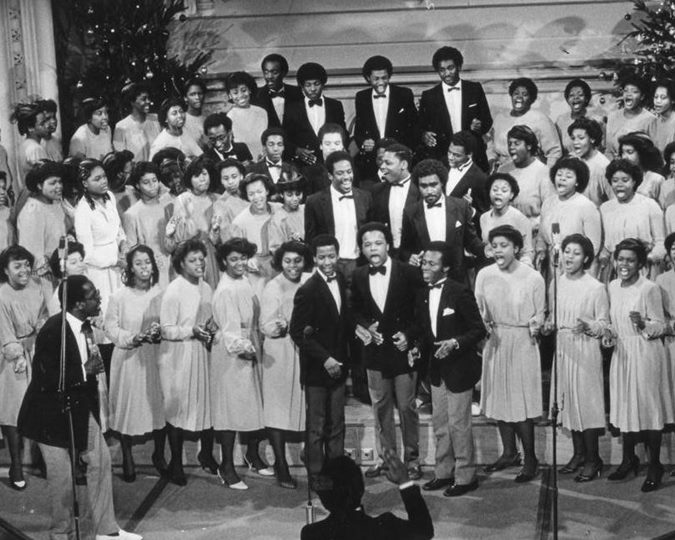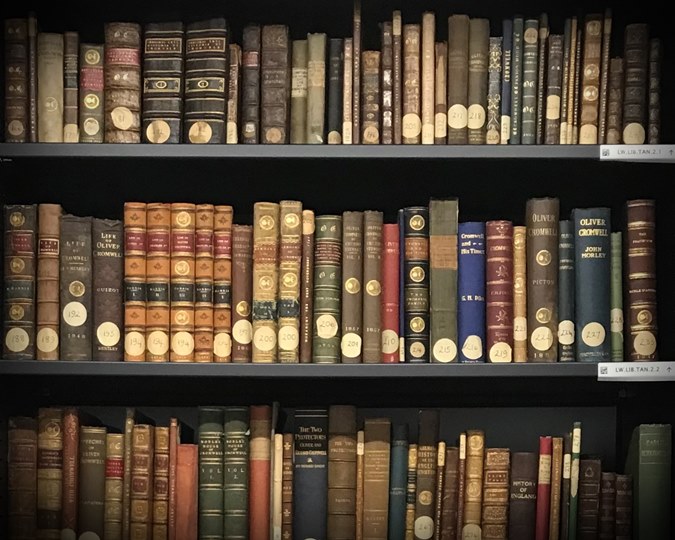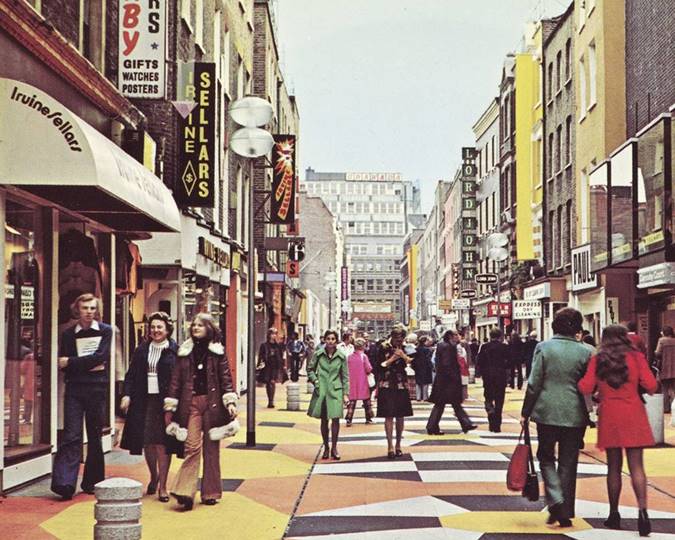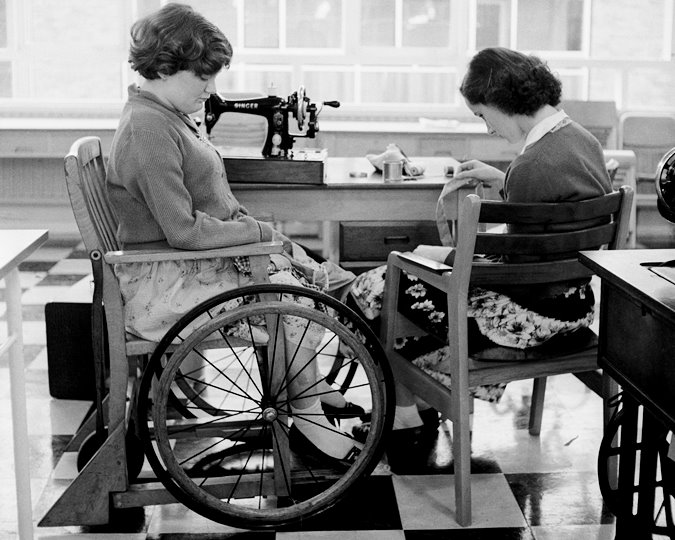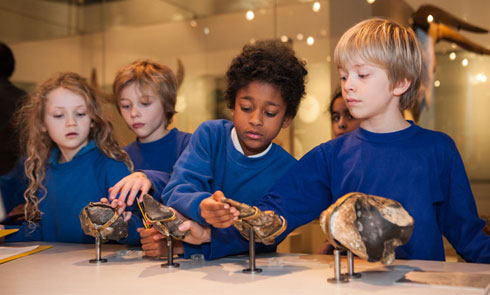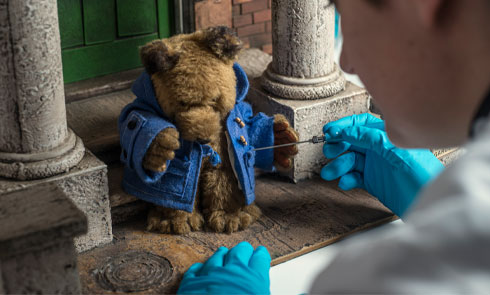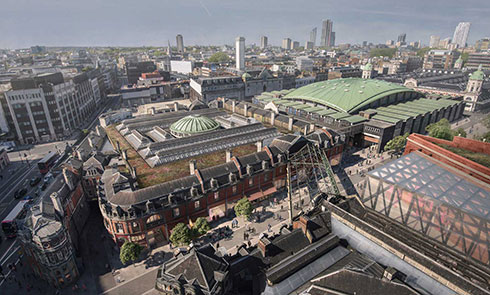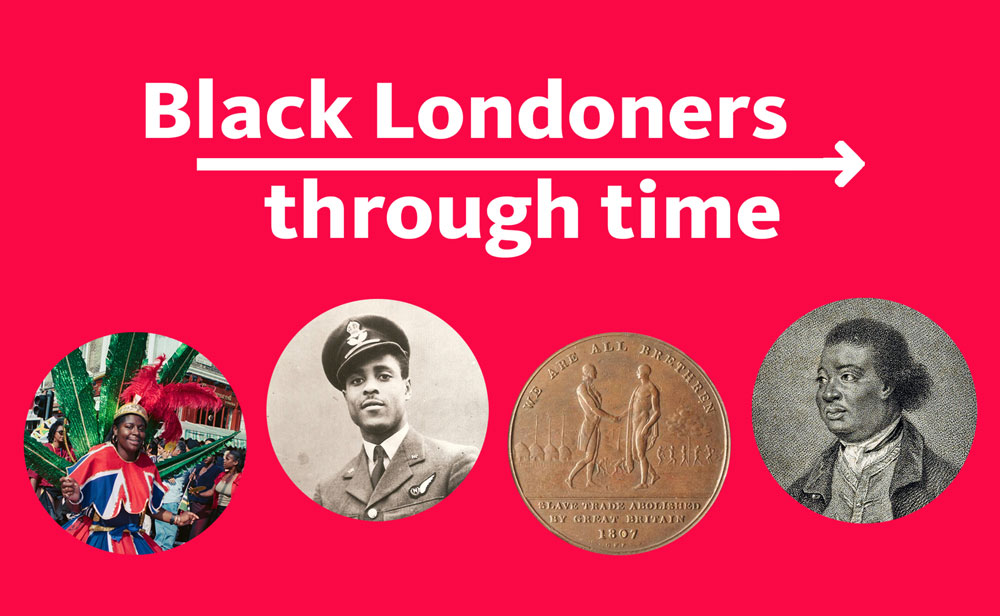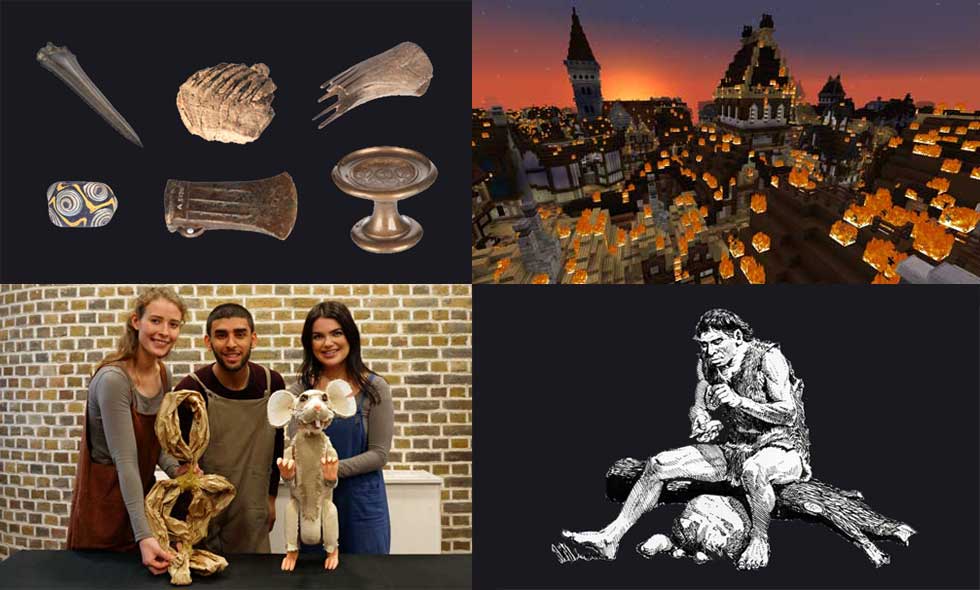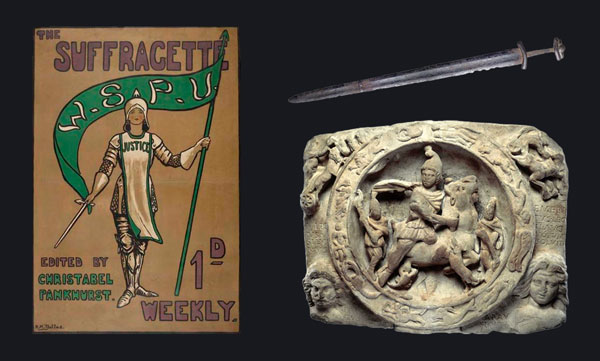Black Londoners through time:
Plain-text version
We've produced this plain-text version of our Black Londoners through time resource to be easier to read and search.
Take a trip back in time to discover just some of London’s Black history from the Roman era to the present day. Learn about the amazing achievements of African and Caribbean Londoners and their contributions to London life.
Children? You’ll need an adult to join you. The stories told here are all true, and some of them may be upsetting. Adults? Click here for information on language used in the resource.
Scroll down and click on the links to dive deeper and find out more.
AD 193: African Romans
Emperor Septimius Severus' reign begins. Aurelian 'Moors' settle in Britain. Find out more.
1241: Domesday Book
An African man is illustrated in a Westminster Abbey manuscript.
1300: Medieval London
Black women live in 14th-century London. Learn more.
1511: John Blanke
A Tudor trumpeter plays in King Henry VIII's court. Discover his story.
1597: Mary Fillis
A young woman, born in Morocco, is baptised in Aldgate.
1661: Barbados Slave Codes
Britain secures its role in the Transatlantic Slave Trade with brutal laws for its Caribbean colonies. The Codes create the idea of 'race' and racial hierarchy.
1731: The City of London
The Lord Mayor forbids any person of colour from becoming an apprentice in the City.
1773: Phillis Wheatley
The African American poet travels to London to publish her work.
1774: Ignatius Sancho
The writer and composer is the first person of African descent to vote in Britain.
1789: Olaudah Equiano
The sailor and abolitionist publishes his autobiography.
1802: West India Docks
New docks open in London to support the Transatlantic Slave Trade. Discover more.
1807: Abolition of the Slave Trade
Britain passes a law to stop the trade in enslaved African people. Slavery continues.
1813: George Bridgetower
The violinist and favourite of King George IV performs with the Royal Philharmonic Society. Discover his story.
1828: Mary Prince
A Bermudan woman is brought to London in enslavement. She escapes and petitions Parliament for her freedom. Find out more.
1833: Slavery Abolition Act
An act is passed calling for the immediate abolition of slavery in most parts of the British Empire.
1850: Sarah Forbes Bonetta
A young girl of Yoruba descent is taken from Dahomey to England and 'given' to Queen Victoria.
1857: Mary Seacole
The Jamaican 'doctress' publishes her life story, 'The Wonderful Adventures of Mrs Seacole in Many Lands'. Find out more.
1900: First Pan-African Conference
A meeting of delegates from Africa, America and the Caribbean is held at Westminster Town Hall.
1914-18: World War One
Walter Tull, one of Britain's first Black professional football players, goes to fight in France.
1919: Race riots
Black and Asian sailors are attacked in London's Docklands and in port cities across the UK.
1931: Harold Moody
The Kingston-born doctor forms The League of Coloured Peoples to campaign for racial equality.
1932: Una Marson
The Jamaican journalist and poet travels to London and becomes the BBC's first Black producer.
1939-45: World War Two
Black servicemen and women answer the call on the ground, at sea and in the air.
1948: Windrush arrival
Almost 1,000 Caribbean British citizens arrive at Tilbury Docks on the Empire Windrush, to help rebuild post-war Britain. Find out more.
1959: Notting Hill Carnival
Europe's largest Caribbean cultural festival, Notting Hill Carnival, is born at St Pancras Town Hall. Hear responses.
1969: Eric and Jessica Huntley
Community educators set up Bogle L'Ouverture publications to share work by Black writers.
1981: Black People's Day of Action
20,000 people march on Parliament to seek racial justice after 13 young Black Londoners are killed in a house fire.
1984: Three Black MPs enter Parliament
Labour MPs Diane Abbott, Paul Boateng and Bernie Grant are elected to Parliament.
1999: The Macpherson inquiry
Years of campaigning by the parents of murdered teenager Stephen Lawrence lead to a public inquiry into institutional racism.
2006: UK Black Pride
Activist and community leader Lady Phyll hosts the first annual celebration of UK Black Pride.
2012: London Olympics
British gold medal winners include Sir Mo Farah, Jessica Ennis, Anthony Joshua and Nicola Adams.
2020: Black Lives Matter
Global protests for racial justice inspire marches in London.
London's future...
Words and terms in this resource
The words society uses to describe people and places are always changing. Names, terms and other words can have very different meanings and associations for different people.
Throughout history, some words and terms have been used to cause harm, degrade people and even take away a person’s humanity and dignity. An example of this is the word ‘slave’ when talking about people of African descent in telling the history of the transatlantic slave trade. Instead we choose to use the word 'enslaved' to make clear that this is an act that has been done to someone rather than an identity in itself.
While this is reflected in our displays, specifically in the ‘London, Sugar & Slavery’ gallery, it is not always reflected in how our collections are documented because in some cases the information was written many years ago. We are working to change this.
In creating this resource, we have thought carefully about the words and terms used to describe the Black experience throughout London’s history.
If you would like further support on dealing with language and terminology in the context of enslavement and empire, important guidance for children and young people can be found here at the Understanding Slavery Initiative website.
We hope you enjoy sharing and using the Black Londoners through time resource.
Black Londoners through time
Keep on discovering London’s Black history from the Roman era to the present day in our timeline.

